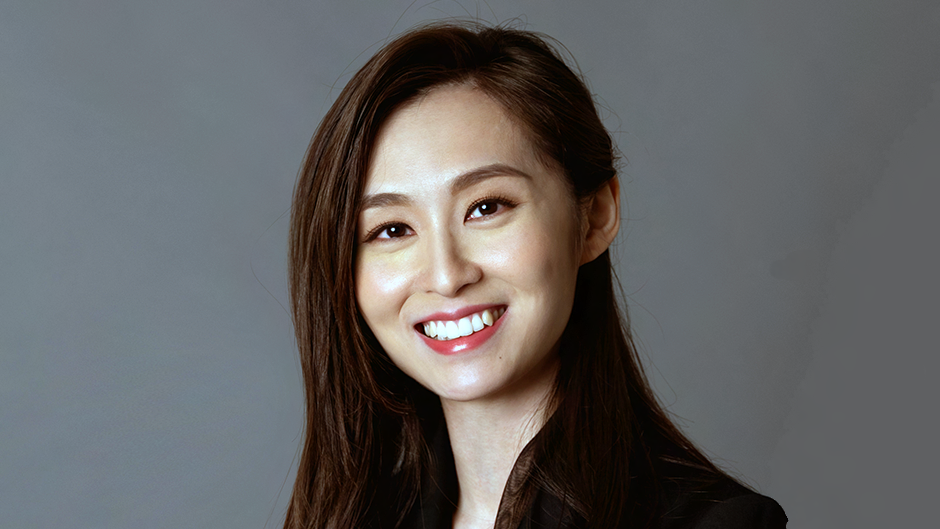There’s an open conversation about the state of women helming symphony orchestras, and the name of Sophie Mok is on the rise.
Mok is described by many as the “most supple and prepared for the spontaneous happening.” She won the 2nd prize at the International Conductor’s Competition at the 2019 Deutsches Musikfest. She was also a finalist chosen among 300 candidates in maestro Riccardo Muti’s Italian Opera Academy with the Orchestra Giovanile Luigi Cherubini. Last year, she was selected to participate in Le Domain Forget Conducting Academy to work with maestro Yannick Nézet-Séguin.
Originally from Hong Kong, Mok arrived in the States in 2020. She had earned a bachelor’s degree in Music from the Hong Kong Baptist University and wanted to pursue her master’s degree in Oboe Performance at the University of Colorado in Boulder. Then, something magical happened in the summer of 2021. She met Frost School of Music maestro Gerard Schwarz at the Eastern Music Festival in North Carolina.
After the end of the five-week festival that consisted of an intense repertoire, there was no question. Mok wanted to continue learning from the celebrated Frost School of Music conductor. So, a year later, she packed her bags and journeyed down to Miami to pursue her Artist Diploma in Conducting major at the Frost School of Music at the University of Miami under the tutelage of Gerard Schwarz.
In this candid interview, she talks about her assistant conductor role with the Frost Symphony Orchestra, her future plans, and her special invitation to conduct for the award-winning Asian Youth Orchestra, a recipient of Japan’s Praemium Imperiale and Nikkei Asia Prize, reported by the San Francisco Chronicle as “amongst the finest youth orchestra round the world.”
Sophie, your portfolio is quite impressive. You have conducted the Orchestre Métropolitain, the Orchestre Symphonique de Québec, the Berlin Sinfonietta, the Orquesta de Cámara del Municipal de Santiago, the Eastern Festival Orchestra, the New Symphony Orchestra, and the Romanian Youth Symphony Orchestra, among others. You were selected through a strict audition process for the Asian Youth Orchestra, a 100-plus orchestra representing musicians from China, Hong Kong, Taiwan, Indonesia, Japan, the Republic of Korea, Malaysia, the Philippines, Singapore, Thailand, and Vietnam. What inspired you to venture into the music conducting field?
I remember watching YouTube videos of famous conductors, looking closely at how they did things. Then, I realized the difference between what I saw on the video and what I saw in real-time. I was like, wow! There are two distinct styles. Suddenly, I was very fascinated by this art. Bringing so much more of my music and energy into the work was exciting.
A staggering 25,000 musicians aged 17 to 27 have auditioned for Asia Youth Orchestra, and you were selected as one. Tell me about that experience.
One word. Phenomenal. After the rehearsal camp in Italy, we will perform in Italy, Germany, Hong Kong, Thailand, Taiwan, and Japan. Moving forward, I will do sectional rehearsals, assist Maestro Joseph Bastian, the principal conductor at AYO, in rehearsals and concerts, listen to balance, and give notes.
What lessons have you learned from acclaimed conductors like maestros Gerard Schwarz, Mikko Franck, Colin Metters, Larry Rachleff, Donald Schleicher, Alejandra Urrutia, and José-Luis Novo, to name a few?
They’ve taught me about what a conductor brings into the picture—helping to unify ideas and listening to what the musicians bring into the piece, too. It’s a give-and-take thing. As maestro Schwarz says, you can study a score for many hours, but you learn so much more by just standing there on the podium. Even in a dress rehearsal, you gain a lot by listening to musicians do their thing. And they, in turn, learn from you.
Aside from Maestro Schwarz, who are the other artists in the Frost studio with you?
Yun Cao, Carlos Lopez, and Alberto Bade.
What is it like to be a female conductor in a predominantly male field?
It used to be like that, but I’ve seen a significant change in the past few years. Female conductors like Amanda Quist and Marin Alsop are coming into the spotlight, more and more. Deep down in our hearts, we all want to make good music. As women, we’re not saying we’re special because we’re women conductors; we’re special because we’re good musicians and conductors. We just want to stand on a podium and make great music.
Finally, what do you hope for the future?
I hope to find a job as a conductor in an orchestra. I like to travel, so I can go anywhere the best job leads me.

